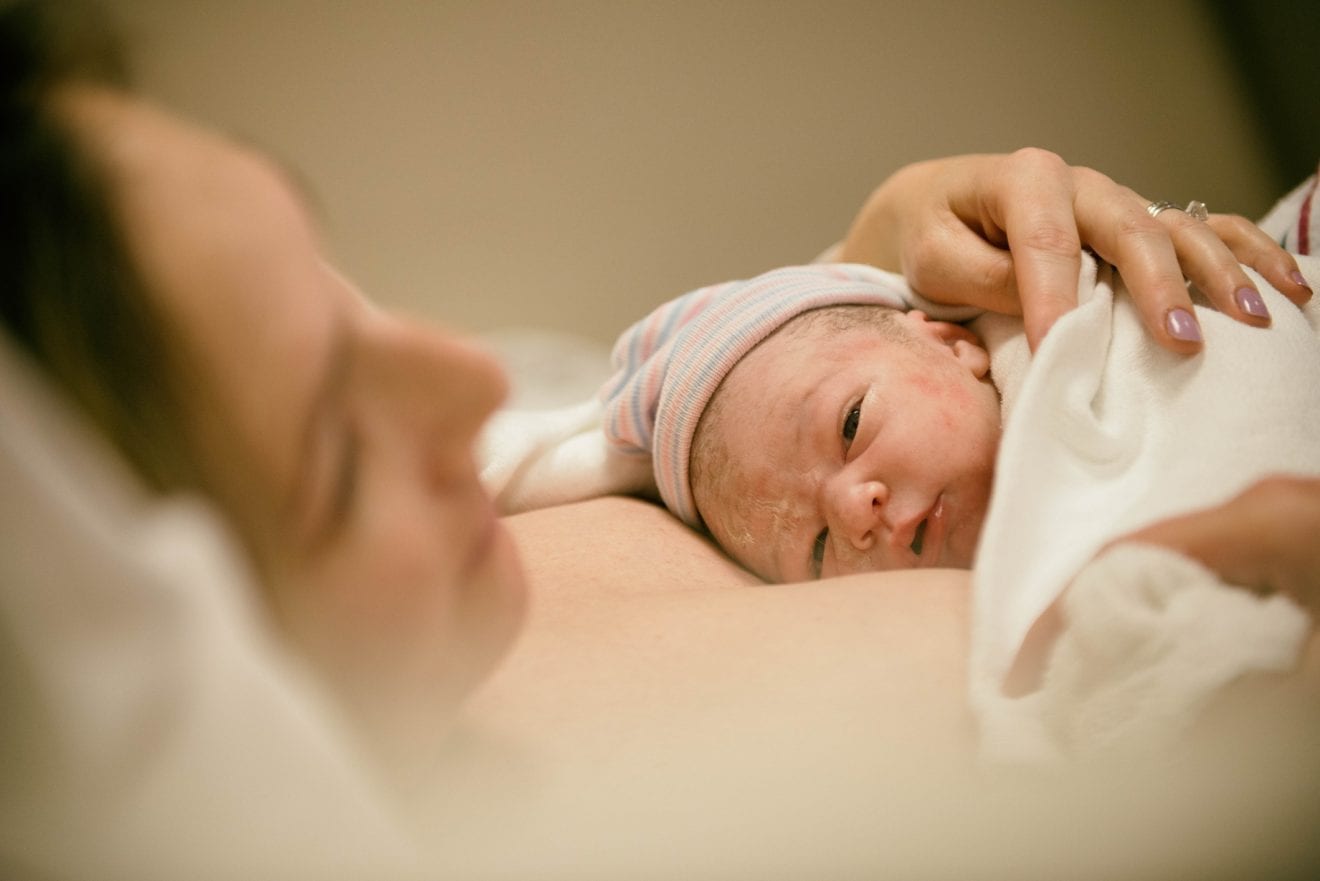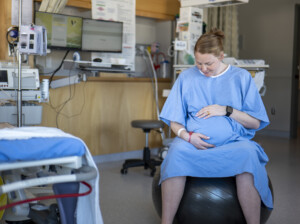You’ve spent your entire pregnancy preparing for your little one to enter the world. But as you reach the end of your pregnancy, are you ready for the actual onset of labor? While most women cannot plan their labor and delivery, there are certain things to pay attention to that can help clue you in as to when your baby may arrive. Even moms planning to be induced or those who have scheduled their C-section can still go into labor before that date. This is why all moms-to-be need to pay attention to signs of labor as they near the end. Knowing what to look for and expect can take away much of the stress associated with the spontaneity of labor.
The Signs of Labor
Here are the common signs of labor (or signs that it’s at least coming soon):
You Can Breathe Easily
You have probably had difficulty breathing for the past few weeks (or more) as your baby kicks your diaphragm and pushes up on your lungs. Suppose you suddenly feel like breathing has become easier and can take that deep, satisfying breath again. This is called lightening and is a sign that the baby has dropped into your pelvis, a position they get into when they are ready to enter the world.1,2,6
In addition to breathing better, you may take even more trips to the bathroom. (When a baby drops, their weight sits more on your bladder.)2,6 You may even notice that your baby bump appears to have shrunk. But just because you are sure the baby has dropped doesn’t mean it’s time to head to the hospital. Often, especially for first-time moms, a baby dropping is just a sign that labor is coming soon, which could mean days or even weeks.1,2,6
Your Water Breaks
This seldom happens as we see it in the movies. Many women may notice a trickle of excess water and have difficulty deciphering urine from amniotic fluid.2,5 Others will feel a gush or experience a significant release of water from their body.5 The water breaks before labor for 8-10% of moms. For the rest of moms, it breaks during labor or at the end while pushing.3 However, for some, labor begins (or signals that it’s about to start) with the water breaking.9
Contact your doctor or midwife if you feel your water may have broken. Tell them if you notice any blood or a brown or green coloring to the fluid. Try smelling your underwear to help determine if it is soaked with amniotic fluid or urine. Amniotic fluid is odorless, so if you smell nothing, it may be a sign your waters have broken.2 You can also put on a clean pair of panties and walk around. If you continue to leak, it’s probably your water, not urine.
You Lose Your Mucus Plug or Have a Bloody Show
In addition to water breaking, you may also experience the loss of your mucus plug or some bloody mucus (bloody show). This comes in the form of mucus that may be tinged with blood or clear. This is a natural progression of labor, and all women will have their mucus plug expelled, but not all will notice it. Bloody mucus can signify that labor will begin in a few days.1,2,4,5
Your Cervix Dilates or Effaces
As you near the end, your provider may ask if you want a cervical exam to check on your dilation. These exams can be uncomfortable for some people, but cervical dilation can be a positive sign of labor. When you get closer to the end, your cervix will thin out (efface) and open (dilate). Your midwife or doctor can feel this progress during an internal exam. However, it’s important to note that many women will not dilate before labor, and others will dilate weeks before labor occurs, so it’s not a perfect indication.2,5 Talk to your doctor about these exams before you agree to one to ensure it’s something you want.
Your Body Relaxes
While your brain is probably not relaxed and your stress levels may seem higher, the rest of your body will “chill out” as you get close to labor. Your bowels will relax, often causing diarrhea.4 Your joints will feel a bit looser, possibly adding clumsiness to your list of symptoms.7,8 And your weight will begin to relax, as you will most likely stop gaining pounds (some women even lose a bit of weight toward the end). You will also feel much more tired and have sudden urges to sit down or doze off.8
On the other hand, some women experience a surge of energy as their baby’s birth day beckons. They may want to clean, nest, or do some last-minute things.4,7 While both are potential signs of labor, they are also common signs of pregnancy. Pay close attention to how your mood and body change to decipher what may differ from your recent symptoms.
You Feel Pelvic Pressure
Shortly before labor starts and often during labor, you may feel an increased pressure in your pelvis and vagina. This can be related to your baby dropping. It can also indicate that your baby is getting into position. This sensation can be pretty uncomfortable, but it is a good sign that your baby and body are getting ready.4,7
You Have Increased Lower Back Pain
It is common to have lower back pain during pregnancy. However, you may notice increased lower back pain as your body prepares for labor. It may come and go or remain constant.5 Sometimes this pain happens when you contract, but you only feel it in your back.2,7 It can also be related to how your baby is positioned.7
You Have True Contractions
During the end of pregnancy, practice contractions called Braxton Hicks contractions are common. These are practice contractions, but they don’t open your cervix. False contractions are irregular and usually stop with rest and hydration.1,7
When labor is approaching or starting, you will most likely notice an increase in contractions. Sometimes it’s hard to know at first if the contractions you are feeling are Braxton Hicks contractions or real labor contractions. Real contractions will not stop with rest and hydration. They have a pattern and will come at regular intervals. They will get closer, longer, and stronger as time passes.1,7
When To Get Evaluated
Now that you know all the signs that labor may start soon, you may wonder when you should call your doctor or midwife. It’s time to call when:1
- You think your water has broken.
- You have regular, painful contractions.
- You have the urge to push or bear down.
- Your baby is moving less than usual.
- You have heavy bleeding from your vagina.
If you cannot contact your doctor or midwife and feel it is an emergency, call 911 or go to the hospital.
Labor can bring about many emotions in women — excitement, anxiety, fear, etc. Whatever you feel, know that you were meant to handle this significant moment in your life. No matter what happens during your labor experience, or the moments leading up to it, the result will be your beautiful baby, and it will all be completely worth it.































